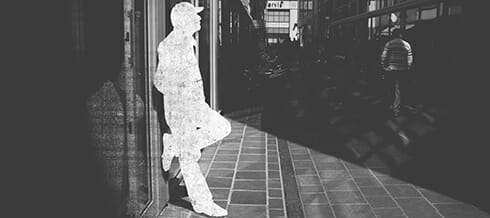Strategic Response Group Publishes Report
June 21, 2012
Strategic Response Group publishes multi-agency report on street-level drug services and substance misuse related anti-social behaviour in Dublin city centre.
Group calls for government support to implement the recommendations.
The Strategic Response Group (SRG), set up as a partnership approach to address public substance misuse and perceived anti-social behaviour in Dublin city centre, today(21/06/2012) published the most comprehensive and innovative multi-agency report and set of recommendations to date, on the topic.
The report acknowledges that for historical reasons there is a clustering of drug treatment and homelessness services in or adjacent to the inner city. While these services play a major role in the provision of effective treatment to problematic drug users, the report recommends that there should be greater access to prompt provision of treatment options nationally and that people should be treated and accommodated in the most appropriate setting for their circumstances and provided with support services as close to their home as possible.
The agencies represented on the group include Ana LiffeyDrug Project; An Garda Síochána; the City Clinic (HSE); Drug Treatment Centre Board; Dublin City Business Improvement District; Dublin City Council; Dublin Simon Community; Merchants Quay Ireland; the North Inner City Drugs Task Force; the South Inner City Drugs Task Force; Union for Improved Services, Communication and Education(UISCE).
The Lord Mayor of Dublin, Andrew Montague, formally launched the report today.
The report takes a holistic approach to address the issues of the city centre. The group have set out their recommendations in the short, medium and long term and under the headings of treatment, rehabilitation, homelessness, policing responses, planning and urban design, legislation and regulation and implementation.
Key recommendations of the report include:
- There should be greater access to and prompt provision of treatment options nationally. People should be treated and provided with support services as close to their home as possible. The treatment provided should be of the level of complexity required to meet their needs. This should ensure that people are only using services that are essential and appropriate to meet their needs and that are local to their place of residence. This should involve a relocation of service provision for some people from the city centre area where possible.
- Gardaí need to be given powers to deal with street dealing of prescription drugs so as to initiate prosecutions. The SRG supports the current proposals byRoisin Shortall TD, Minister of State with special responsibility for the National Drugs Strategy, to update the Misuse of Drugs legislation in relation to Benzodiazepines. Provisions should also be made for the scheduling of Z-Hypnotics (Zimmovane).
- Emergency accommodation should only ever be used in an ‘emergency’. This is often not the case, due to a lack of suitable long-term housing options people often spend long periods in emergency accommodation. Private B&B’s are a form of emergency provision which are often not fit for purpose and are without regulatory provision.
- To discourage street-drinking, to reduce harm and to offer safer alternatives, accommodation models should be provided where people who wish to consume alcohol can do so in their accommodation under regulated conditions.
- Enhanced public lighting is required to increase public perceptions of safety in particular locations & in general street planning to predict potential use of public spaces.
- There is a need to strengthen the links between existing Local Drug Task Forces, particularly in the City Centre area (North Inner City, South Inner City). There is a need to explore a cross North Inner City Local Drugs Task Force and South Inner City Local Drugs Force Partnership Group with a specific focus on implementing the recommendations within this report at a local level.There is a need to make community-based residential crisis stabilisation/ detoxification unit(s) available. These should target people with problematic poly-substance use (including alcohol) and multiple needs i.e. public injectors, people with mental health issues and people who are homeless.
The issue of substance-related anti-social behaviour is primarily a public health issue and any sustainable long-term solution can only be delivered in that context. As a consequence, the recommendations contained within this report are aimed at investigating ways to deliver people’s treatment or accommodation needs in a way that can assure greater public support.




